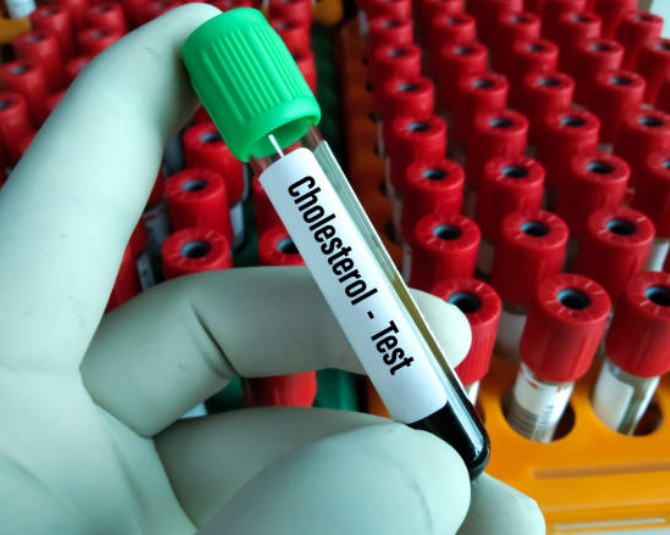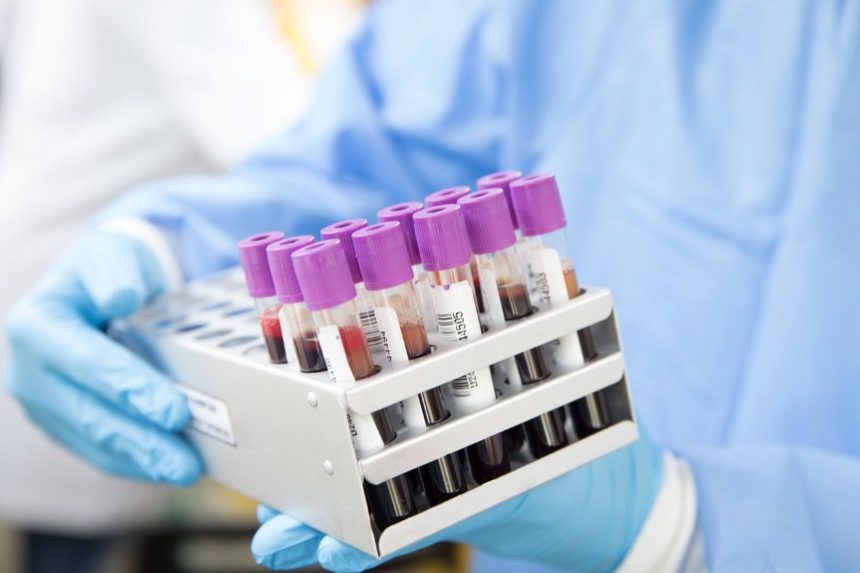The NHS Health Check helps adults aged 40 to 74 spot hidden health risks. Many don’t realise which blood tests are included or why they matter.
This quick guide explains what’s tested and how it helps protect your future health.
What is the NHS Health Check?
The NHS Health Check is a national programme in England designed to spot health issues early—often before any symptoms appear. It’s a proactive way to check your risk of serious conditions like heart disease, stroke, diabetes, kidney disease, and dementia.
Why is the NHS Health Check Important?
- It detects early warning signs of serious illnesses, even when you feel fine.
- You get personalised health advice to help lower your risks.
- It supports proactive lifestyle changes like improving diet, exercise, weight, and managing smoking or alcohol habits.
- It identifies heart and stroke risks before they develop into serious problems.
- It helps you live longer and healthier by acting early to prevent chronic diseases.
The NHS Health Check is more than just a routine—it’s a powerful chance to protect your future health.
What Blood Tests Are Done on NHS Health Check?
The blood tests included in an NHS Health Check are designed to uncover silent health risks. Here’s a detailed look at each test.
1. Cholesterol Blood Test
What It Measures:
- Total Cholesterol: Measures the combined level of all types of cholesterol in your blood, indicating your overall cholesterol status.
- HDL (Good Cholesterol): Assesses the protective cholesterol that helps remove harmful cholesterol from your arteries.
- LDL (Bad Cholesterol): Measures the cholesterol that can build up on artery walls, increasing the risk of blockages.
- Triglycerides: Measures fat levels in your blood, which, if high, can also contribute to artery hardening and heart disease.
Why It’s Important:
The cholesterol test in the NHS Health Check helps spot high-risk heart patients early, even if they have no symptoms. It can also predict stroke risk by identifying raised LDL (bad) cholesterol. Your results guide whether lifestyle changes are enough or if medication like statins might be needed.

2. Blood Sugar (Glucose) Test
What It Measures:
- Fasting Blood Glucose: Measures your blood sugar level after you haven’t eaten for several hours to detect diabetes risk.
- HbA1c (Average Blood Sugar Over Time): Provides a long-term view of your blood sugar levels over the previous two to three months.
Why It’s Important:
The NHS Health Check screens for type 2 diabetes and can detect pre-diabetes early, often before symptoms appear. Catching it early helps you manage blood sugar and prevent serious complications like kidney damage, nerve issues, and vision loss.
3. Kidney Function Blood Test (If Required)
What It Measures:
- Creatinine Levels: Measures waste levels in your blood to assess how well your kidneys are filtering toxins.
- eGFR (Estimated Glomerular Filtration Rate): Calculates how efficiently your kidneys are working based on your creatinine level, age, sex, and body size.
Why It’s Important:
The kidney function test can detect early damage, often before symptoms appear. It also highlights links to high blood pressure and heart health, and may prompt further tests or treatment adjustments if needed.
4. Liver Function Blood Test (Sometimes Included)
What It Measures:
- Liver Enzymes (ALT, AST, GGT): These show if your liver is inflamed or damaged.
- Bilirubin Levels: High bilirubin can indicate liver or gallbladder issues.
- Albumin Levels: Low albumin may suggest poor liver function or long-term liver disease.
Why It’s Important:
The liver function test can spot early fatty liver disease and signs of alcohol-related damage. High enzyme levels may signal a problem, but early changes in diet and alcohol habits can often reverse the damage.

5. Full Blood Count (Sometimes Offered)
What It Measures:
- Red Blood Cells (Haemoglobin Levels): Determines whether you may have anaemia, which can cause tiredness and breathlessness.
- White Blood Cells (Infection or Immune Health): Elevated or low counts may indicate infection, inflammation, or immune system issues.
- Platelets (Clotting Health): Low or high platelet counts may signal clotting disorders or other underlying conditions.
Why It’s Important:
A full blood count (FBC) can uncover causes of unexplained fatigue by detecting low red blood cells or haemoglobin. It also reveals hidden infections through abnormal white blood cell counts and offers a broad overview of your health that might need further checks.
Why Are Blood Tests Important in an NHS Health Check?
Imagine feeling perfectly fine one day, but a simple blood test reveals something hidden beneath the surface—an early warning sign that could help catch a health issue before it even causes symptoms. That’s why blood tests are so important: they give vital information about your health that you might not otherwise notice.
Why do these blood tests matter?
Blood tests detect hidden risks like high cholesterol and diabetes early, enabling timely treatment and personalised care. They help prevent serious issues like heart attacks and track your health over time.
These tests can be crucial for catching problems before they become serious.
How Is the Blood Test Taken During an NHS Health Check?
Finger-Prick Blood Test:
- Quick and minimally invasive: A small sample is taken from your fingertip using a lancet.
- Instant cholesterol readings: Some cholesterol tests can be performed on-site, giving you results within minutes.
- Sometimes used for glucose testing: Certain clinics can provide immediate glucose results using finger-prick samples.
Venous Blood Sample:
- More comprehensive analysis: Blood is drawn from a vein in your arm using a syringe.
- Lab-based testing: The sample is sent to a laboratory for more detailed cholesterol, glucose, kidney, liver, and blood count analysis.
- Results provided within a few days: Your GP or health provider will contact you to discuss the results.

Your healthcare professional will let you know whether a finger-prick or venous blood test is appropriate for you based on your risk profile and testing requirements.
What Happens After My NHS Health Check Blood Test?
After your NHS Health Check blood test, your GP will go through your cholesterol, glucose, kidney, and liver results and explain what they mean for your health. They’ll also calculate your risk of heart disease or stroke over the next 10 years.
Depending on your results, you might get advice on lifestyle changes like diet, exercise, or quitting smoking. If needed, they may suggest treatments like statins or other medications. The goal is always to prevent problems early and keep you healthy long term.
What Blood Tests Are Not Included in the NHS Health Check?
While the NHS Health Check covers a wide range of blood tests, it does not typically include:
- Cancer blood markers: Such as PSA for prostate cancer or CA-125 for ovarian cancer; these are arranged separately if needed.
- Thyroid function tests: These require additional testing if you show symptoms of an overactive or underactive thyroid.
- Vitamin deficiency tests: Tests for vitamin D, vitamin B12, folate, and iron deficiency are not part of the standard check.
- Autoimmune condition screening: Tests for rheumatoid arthritis, lupus, or coeliac disease are not included unless symptoms suggest them.
If you have specific health concerns, your GP can advise you on whether extra blood tests are appropriate outside the NHS Health Check.
How Often Should You Have an NHS Health Check?
Every so often, you might get a letter from your GP inviting you for something called an NHS Health Check. For most people, this happens once every five years, and while it’s easy to put off, it’s actually a valuable chance to catch early signs of health problems you might not feel yet.
Why every five years?
Health changes in cholesterol, blood sugar, and organ function occur gradually, so monitoring should be done at appropriate intervals. This approach allows time for lifestyle adjustments to take effect and ensures efficient use of NHS resources, as frequent testing for low-risk individuals is usually unnecessary. If test results indicate an increased risk, follow-up checks or more regular monitoring may be recommended.
NHS Health Check Blood Tests Summary:
At your NHS Health Check, the simple blood tests tell an important story. They quietly check for hidden risks — like high cholesterol, rising blood sugar, or early signs of kidney and liver problems — long before you feel anything wrong.
Sometimes, they’ll also check your blood cells to make sure nothing is being missed. It’s all about spotting problems early so you can stay well, not waiting until






